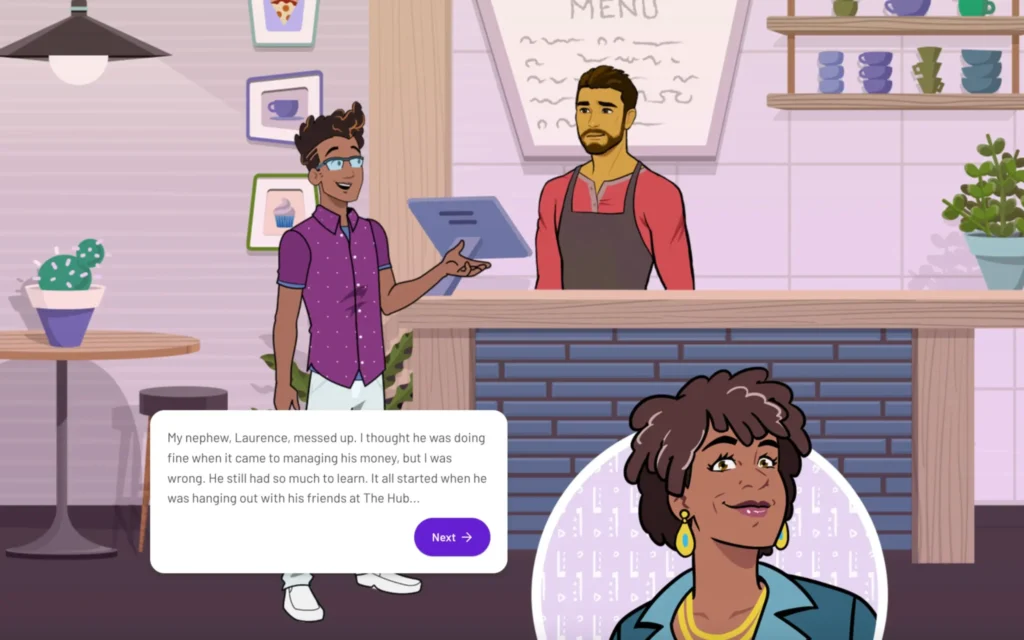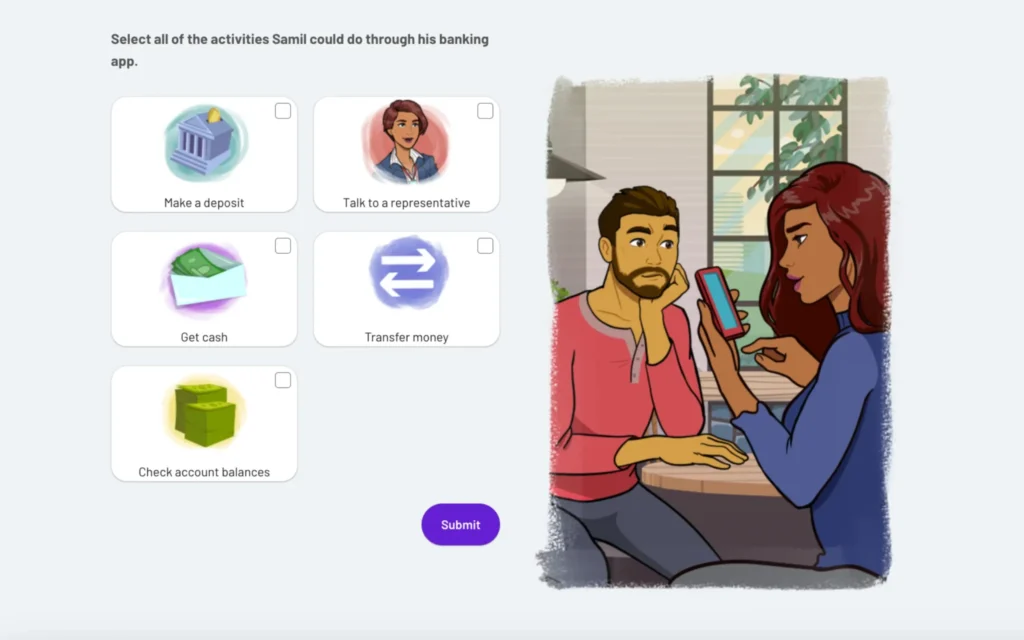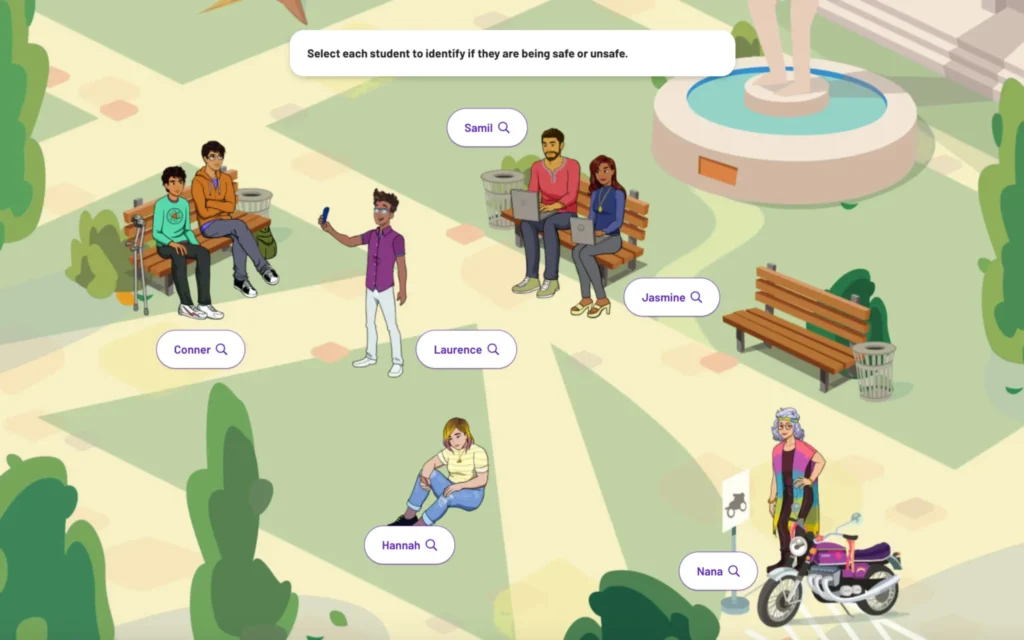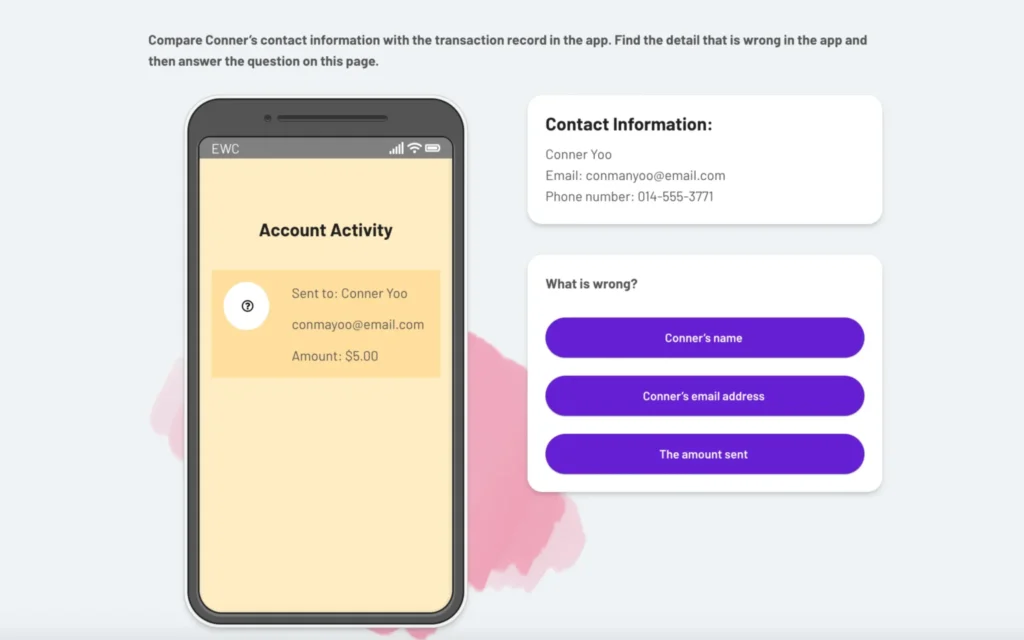Financial Education
Modern Money: Safe Digital Banking
- Beginning Employment
- Budgeting
- Checking Accounts
- Consumer Skills
- Credit and Debit Basics
- Education and Financial Aid
- Education ROI
- Exploring Jobs and Careers
- Filing Your Taxes
- Insurance Basics
- Savings Accounts
- Smart Money Habits
Why Adopt This Course?
This financial education course provides students with the knowledge and skills to make wise decisions that promote financial wellbeing. Through interactive real-world scenarios, students learn strategies to manage their finances, how to safely and responsibly use banking tools, and methods to recognize and avoid scams and fraud. The course is designed to create more confident, financially savvy high schoolers that are prepared for adulthood.
At-A-Glance
Grade Level
9th, 10th, 11th, 12thLength
4 digital lessons, 20 min each
Languages
Standards
Jump$tart National Standards in K–12 Personal Finance Education
Curriculum Fit
Finance, Economics, CTE, Social Studies, Business, and FACS
Students learn about the benefits of financial institutions, including how to proactively evaluate and seek out financial institutions to meet their needs.

Students learn how features of digital and in-person banking can meet their needs, and how to use online banking tools to manage their money.

Students learn ways to control their personal information online, identify potential financial scams or fraud, and how to get help if they’re targeted for a scam or fraud.

Students learn potential risks and benefits of peer-to-peer (P2P) payment apps, how to safely use P2P apps, and how to avoid P2P scams or fraud.

-
Less than a third of high school juniors and seniors reported that they felt prepared to compare financial institutions and select one that best meets their needs (32%). Slightly more students — but still less than half (47%) — felt they could select, open, and manage a savings or checking account.
Young people also reported low levels of confidence in their ability to establish financial habits that contribute to long-term financial wellbeing: budgeting and managing credit. Half of juniors and seniors said they were “prepared” or “very prepared” to set up and follow a budget, while just a third (32%) felt they could check their credit and maintain good credit over time.
These skills budgeting and managing credit – are essential as young people move toward financial independence. The decisions they make in the next one to two years begin to carry consequences that can last much longer, directly impacting their lifetime financial wellbeing.
-
Yes, given the critical role of skill and confidence in building financial wellbeing, the low levels of preparedness among young people could be a sign of trouble as students finish high school and move toward financial independence.
-
Students learn the fundamentals of money management in financial literacy classes, including budgeting, saving, paying off debt, investing, and more. This information offers the groundwork for kids to establish sound financial practices at a young age and steer clear of many mistakes that result in ongoing financial difficulties.
Why Everfi?
Everfi empowers educators to bring real-world learning into the classroom and equip students with the skills they need for success-now and in the future. Our curriculum and courses are:
- Loved by 750,000+ teachers
- Aligned to US, Canada, and UK learning standards.
- Real-world lessons that are self-paced and interactive.
- Automatically graded with built-in assessments and reporting.
- Extendable with activities and resources to bring the information to life.
- Supported with a dedicated, regional team.
- Forever free for K-12 educators.
How Are These Lessons Free?
Thanks to the generous sponsorship of corporations who share our mission, Everfi’s courses are completely free to teachers, districts, and families
This course is made possible through partnerships with community-focused financial institutions who invest in student financial literacy. That’s why everything—curriculum, training, and support—is completely free to educators.
